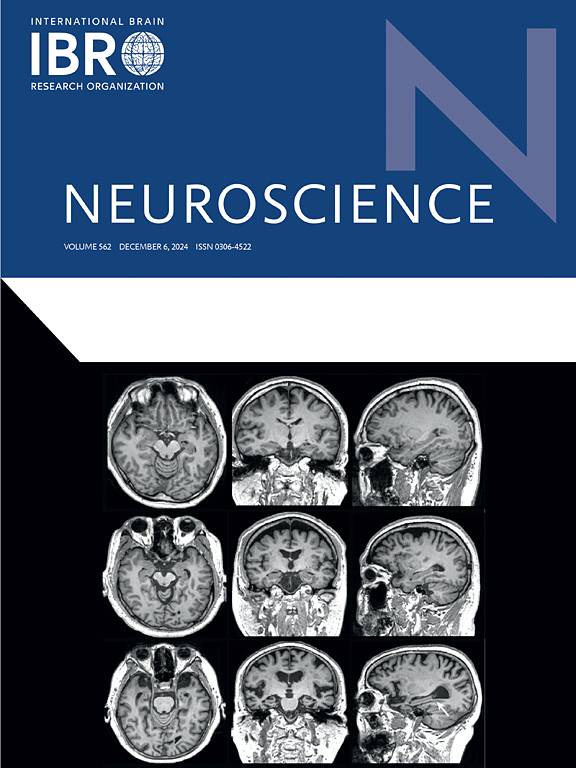慢性应激干扰了小鼠海马和前额叶皮层中同型半胱氨酸的代谢。
IF 2.9
3区 医学
Q2 NEUROSCIENCES
引用次数: 0
摘要
压力是认知障碍的一个独立风险因素,而血浆同型半胱氨酸(HCY)水平的升高在压力导致的认知能力下降中起着至关重要的作用。虽然血浆中 HCY 水平的升高与外周分解代谢异常有关,但压力对大脑中 HCY 分解代谢的影响仍不清楚。本研究通过分析海马和前额叶皮层中的HCY及其代谢酶,研究了压力对大脑中HCY代谢的影响。结果表明,在受到3周束缚应激的小鼠的这些脑区,酶MS(蛋氨酸合成酶)、CBS(胱硫醚β合成酶)和CSE(胱硫醚γ-赖氨酸酶)明显减少,导致HCY积累。此外,MTHFR(亚甲基四氢叶酸还原酶)也没有发生变化。免疫荧光双标记显示应激小鼠神经元中的 HCY 代谢酶下调。转录因子 KLF4(Kruppel-likefactor4)以其抑制作用而著称,它在应激或糖皮质激素治疗后增加,并抑制了 MS、CBS 和 CSE 的表达,导致大脑中 HCY 水平升高。这些发现为了解应激状态下大脑中HCY分解代谢的障碍提供了新的视角,表明HCY代谢酶的下调可能是HCY积累和加剧应激诱导的认知功能障碍的基础。本文章由计算机程序翻译,如有差异,请以英文原文为准。
Chronic stress disturbed the metabolism of homocysteine in mouse hippocampus and prefrontal cortex
Stress is an independent risk factor for cognitive impairment, with elevated plasma homocysteine (HCY) levels playing a crucial role in stress-induced cognitive decline. While the rise in plasma HCY levels is linked to abnormal peripheral catabolism, the impact of stress on HCY catabolism in the brain remains unclear. This study investigated the effect of stress on HCY metabolism in the brain by analyzing HCY and its metabolic enzymes in the hippocampus and prefrontal cortex. The results showed a significant decrease in enzymes MS (methionine-synthase), CBS (cystathionineβ-synthase), and CSE (cystathionine γ-lyase) in these brain regions of mice subjected to 3 weeks of restraint stress, leading to HCY accumulation. Additionally, the enzyme MTHFR (methylenetetrahydrofolate reductase) remained unchanged. Immunofluorescence double-labeling revealed the downregulation of HCY metabolic enzymes in neurons of stressed mice. The transcription factor KLF4 (Kruppel-like factor 4), known for its inhibitory role, increased after stress or glucocorticoid treatment and suppressed the expression of MS, CBS, and CSE, contributing to elevated HCY levels in the brain. These findings offer new insights into the impairment of HCY catabolism in the stressed brain, suggesting that the downregulation of HCY metabolic enzymes may underlie HCY accumulation and exacerbate stress-induced cognitive dysfunction.
求助全文
通过发布文献求助,成功后即可免费获取论文全文。
去求助
来源期刊

Neuroscience
医学-神经科学
CiteScore
6.20
自引率
0.00%
发文量
394
审稿时长
52 days
期刊介绍:
Neuroscience publishes papers describing the results of original research on any aspect of the scientific study of the nervous system. Any paper, however short, will be considered for publication provided that it reports significant, new and carefully confirmed findings with full experimental details.
 求助内容:
求助内容: 应助结果提醒方式:
应助结果提醒方式:


